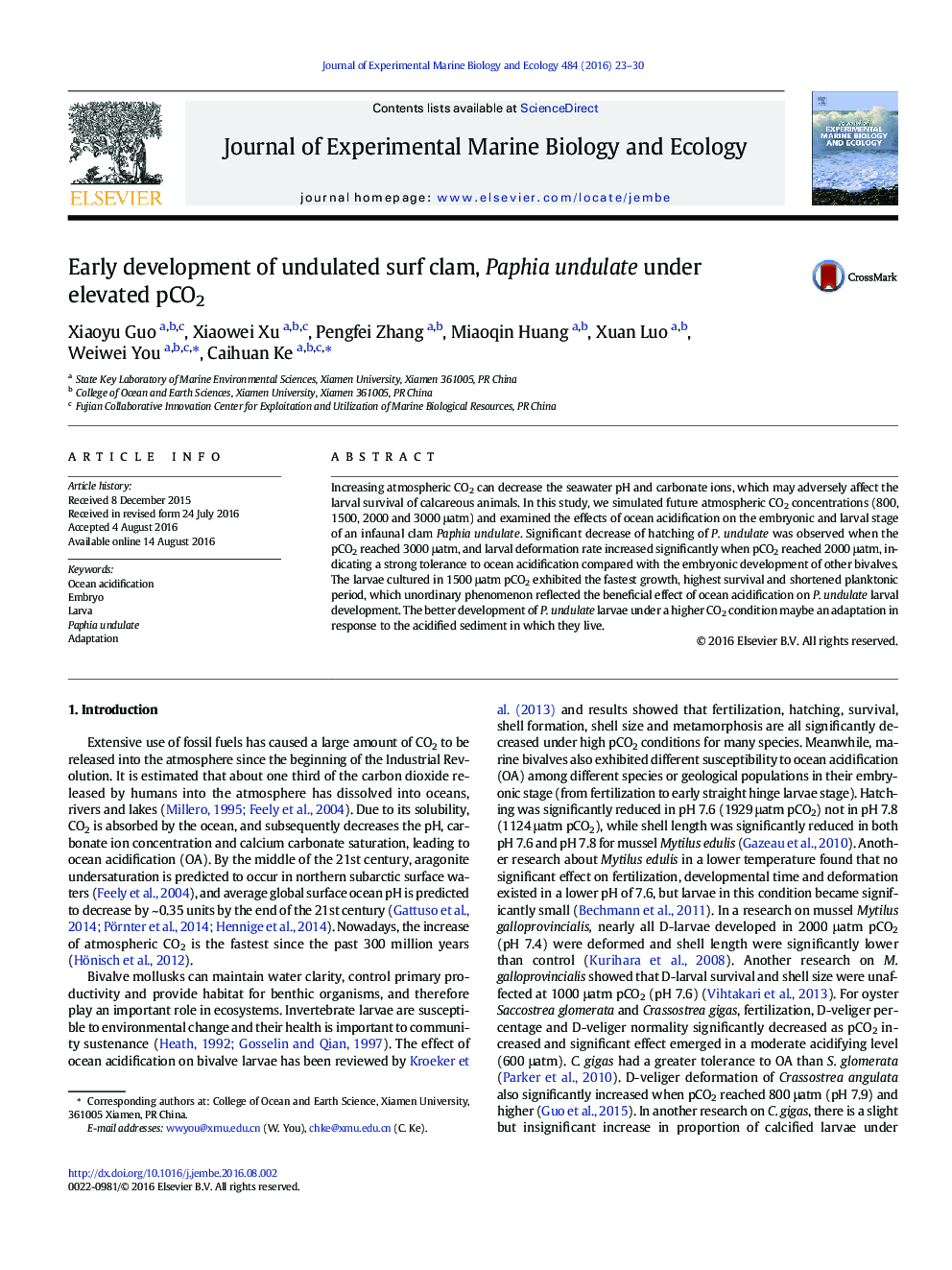| Article ID | Journal | Published Year | Pages | File Type |
|---|---|---|---|---|
| 4395204 | Journal of Experimental Marine Biology and Ecology | 2016 | 8 Pages |
•A beneficial effect of high pCO2 on molluscan larval development was observed.•This effect may be due to an adaptation to the acidified and varying environment.•This effect is quite rare in ocean acidification research on marine bivalves.
Increasing atmospheric CO2 can decrease the seawater pH and carbonate ions, which may adversely affect the larval survival of calcareous animals. In this study, we simulated future atmospheric CO2 concentrations (800, 1500, 2000 and 3000 μatm) and examined the effects of ocean acidification on the embryonic and larval stage of an infaunal clam Paphia undulate. Significant decrease of hatching of P. undulate was observed when the pCO2 reached 3000 μatm, and larval deformation rate increased significantly when pCO2 reached 2000 μatm, indicating a strong tolerance to ocean acidification compared with the embryonic development of other bivalves. The larvae cultured in 1500 μatm pCO2 exhibited the fastest growth, highest survival and shortened planktonic period, which unordinary phenomenon reflected the beneficial effect of ocean acidification on P. undulate larval development. The better development of P. undulate larvae under a higher CO2 condition maybe an adaptation in response to the acidified sediment in which they live.
